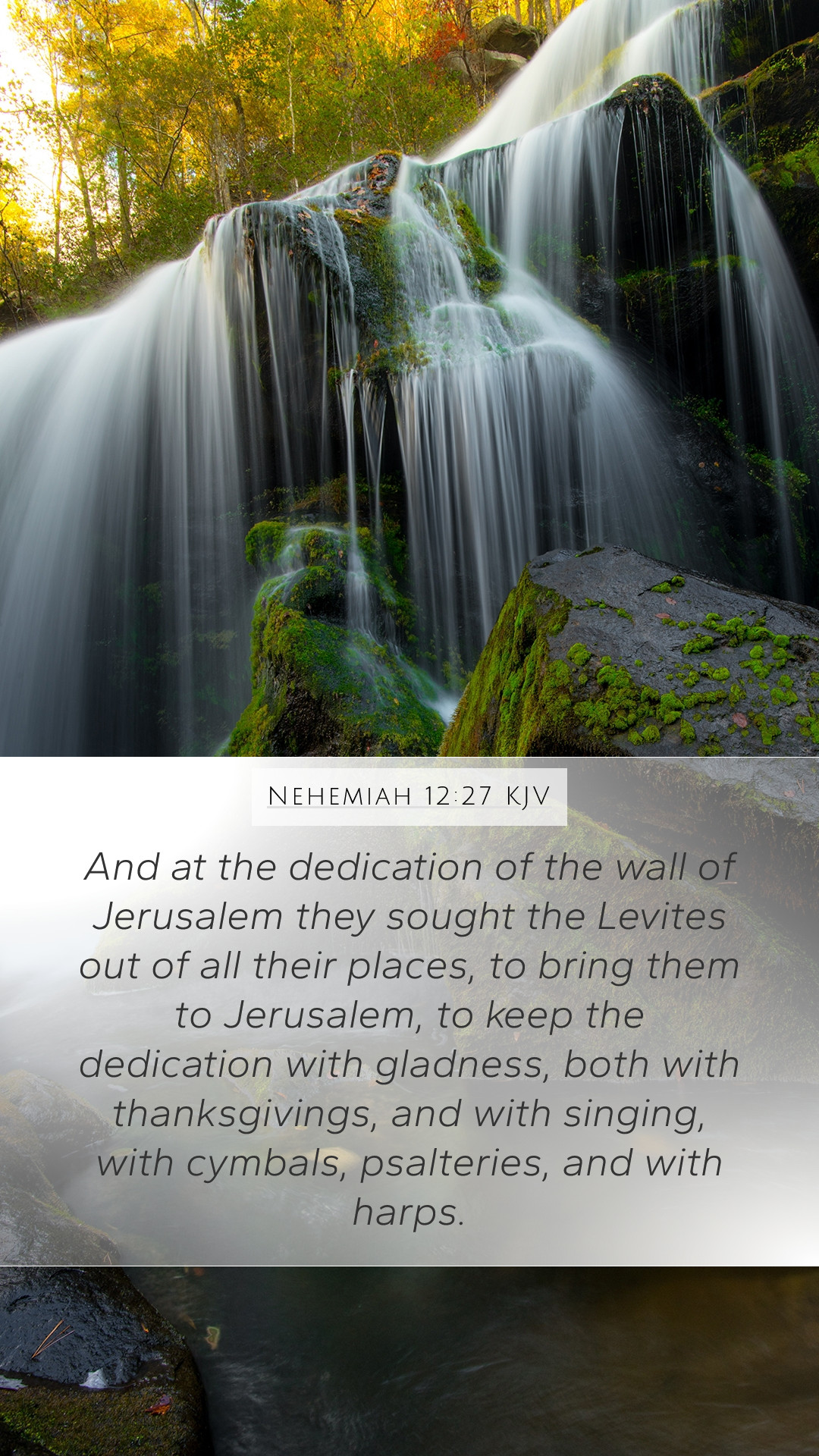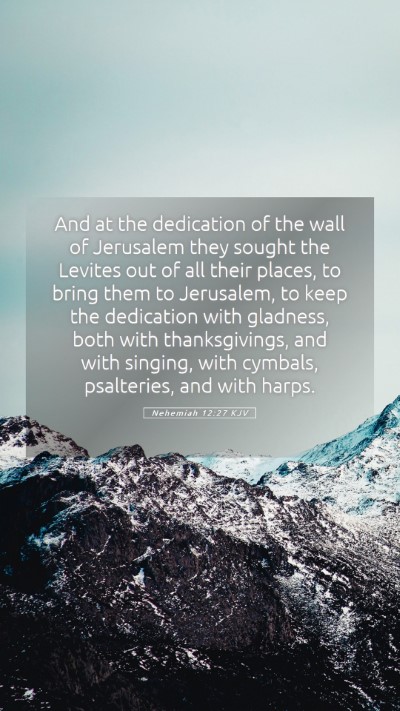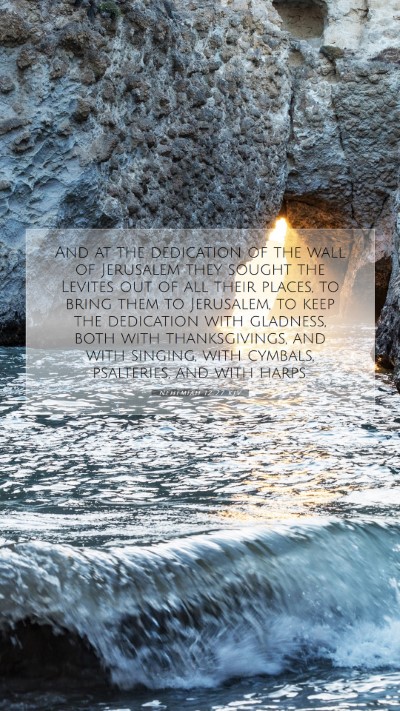Understanding Nehemiah 12:27
Nehemiah 12:27 states: "And at the dedication of the wall of Jerusalem they sought the Levites out of all their places to bring them to Jerusalem, to keep the dedication with gladness, both with thanksgivings, and with singing, with cymbals and with harps and with psalteries."
Summary of Nehemiah 12:27
This verse highlights a significant event in the history of Jerusalem— the dedication of the wall after its reconstruction. The gathering of Levites underscores the community’s need for spiritual leaders as they celebrate this monumental occasion. The elements of joy, thanksgiving, and music signify a profound act of worship and gratitude toward God for His protection and guidance during the rebuilding process.
Bible Verse Meanings and Interpretations
The meaning of Nehemiah 12:27 can be expounded upon through various public domain biblical commentaries. Below, we summarize insights from noted commentators.
Matthew Henry's Commentary
Henry emphasizes the importance of joy in worship. He notes that the Levites were summoned to Jerusalem specifically because their role was to lead the people in worship and celebrations. This gathering is not merely for ritualistic purposes but signifies the community coming together to acknowledge God’s provision. The act of dedication itself is a covenantal reaffirmation between the people and God.
Albert Barnes' Notes
Barnes focuses on the significance of the dedication ceremony. He explains that it reflects God’s faithfulness in restoring the people after their exile. By seeking out the Levites, the leaders show an understanding of the necessity of spiritual guidance in times of communal celebration. The detailed mention of instruments reinforces the idea that worship should be both heartfelt and expressive, symbolizing the joy of restored community and divine favor.
Adam Clarke’s Commentary
Clarke provides an in-depth look at the cultural practices surrounding the dedication. He notes how the musical instruments described were standard in ancient Palestinian worship, linking to deeper cultural roots of Israel's sacrificial system. Clarke posits that the wall's dedication symbolizes God's protection over Jerusalem and serves as a reminder of His covenant. He suggests that the joy of the celebration reflects the broader theme of redemption that resonates throughout Scripture.
Significance of Nehemiah 12:27
Understanding Scripture, specifically Nehemiah 12:27, involves recognizing its significance historically and spiritually. This event embodies the themes of restoration, communal worship, and devotion. It serves as an example of how the Israelites marked significant events with recognition of God's influence and presence in their lives.
Key Themes
- Joy and Worship: The verse emphasizes communal worship as an expression of joy and gratitude to God.
- Spiritual Leadership: The involvement of the Levites indicates the essential role of spiritual leaders in guiding community worship.
- Divine Restoration: The dedication of the wall signifies the restoration of the Jewish people post-exile and God’s ongoing commitment to His covenant.
Related Bible Cross References
- Ezra 3:10-11: A similar dedication ceremony occurs when the foundations of the temple are laid.
- Psalm 30:12: Speaks of turning mourning into joy, relevant to the celebratory nature of this event.
- Nehemiah 8:10: Highlights the importance of joy in God as strength, echoing the sentiments of celebration.
Application of Nehemiah 12:27
For modern readers looking at this scripture analysis, Nehemiah 12:27 encourages believers to celebrate God’s faithfulness and to recognize the importance of community and worship. It challenges individuals and Bible study groups to find ways to express gratitude tangibly, whether through music, service, or communal gatherings.
In Conclusion
Nehemiah 12:27 offers rich insights into the significance of community, worship, and the importance of honoring God in moments of triumph. By interpreting this verse in the context of its historical background and spiritual implications, one can draw meaningful applications to their faith journey today.


